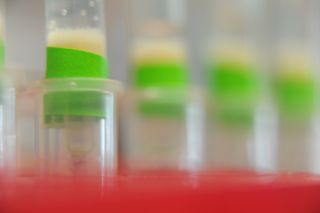All Hope is Not Lost for Better Healthcare
 isbscience.org/news/2012/02/17/all-hope-is-not-lost-for-better-healthcare/
isbscience.org/news/2012/02/17/all-hope-is-not-lost-for-better-healthcare/
By Jeremy Johnson
I used to feel a hopelessness about modern healthcare. We would talk in circles about how some people would get the care they needed, others would not, and that was the way of the world. Being what the insurance company calls a “young and healthy,” I had the luxury of watching the game unfold, but I didn’t have anything personal at stake.
Then, a few Novembers back, I carelessly ran down some steps, slipped and came down hard on my ribs. After a couple of days of pain, I finally went to get checked out to make sure I hadn’t broken something.
I left the hospital two hours later after a reasonable copayment and with a prescription. But before long, my insurance company was pursuing me to see who would pay the bill for my visit. You see, as I was being admitted, the doctor asked if I had been on my own property when the fall took place. Because I had been at a friend’s house, my insurance carrier believed the property owner should pay – or that I should pay for this bill myself.
I refused to be bullied into blaming someone else for my own carelessness, so I prepared myself to pay the bill. I had been at the hospital for only two hours. How much could it possibly be? Then they told me how much: just over $8,000.
That was an insane amount of money for a minor injury. I had heard plenty of stories of people losing everything because of an illness, but I was always skeptical. Until I woke up to that very reality. It’s no wonder we have reached the end of our patience with this issue of affordable healthcare. What can be done about this crisis?
I'm not a doctor or scientist. I lucked into a job with a remarkable group of people who have dedicated their lives to scientific discovery and advancement. But you don’t need to be a scientist to know that the advances ISB is pioneering will radically change healthcare, and absolutely for the better. It all comes down to whether you see modern medicine as a reactive or a proactive process, whether you treat every patient with the same drug and dosage, or whether you take the steps toward personalizing healthcare for the individual – to stop the seed of disease before it has a chance to grow.
ISB's president, Dr. Leroy Hood, often explains that the current state of medical treatment is based on trial and error or the law of averages. If you are treating cancer, for example, you have to administer a large enough dose of the drugs to kill the targeted cells, but not so large a dose that it harms the surrounding healthy cells. Cancer therapy for the pancreas might also affect the liver, kidneys and anything else in the vicinity. It's how it's been done since radiation and chemotherapy were introduced more than a century ago and the collateral damage has been a cost of fighting disease.
But things are changing.
Scientists can stratify disease states. Doctors now, for example, can break down leukemia to lymphobastic, myelogenous, hairy cell and prolymphocytic types – among others – and get better results by customizing treatments accordingly. This is helpful in reducing collateral damage.
In addition to a better understanding of diseases, scientists also know more data about human genetics. The Human Genome Project, completed in the late 1990s, helped researchers discover that the connection between disease and family history is stronger than we ever realized. Why was it that George Burns could smoke between 10 to 15 cigars a day for more than 70 years and never develop throat cancer, while up to 15 percent of those diagnosed with lung cancer are non-smokers? What makes weight loss a struggle for some and not others?
The probability is that the Burns family genetic code did not have a likelihood of developing tobacco-related cancer. There is a cancer switch in the Burns family genome map that is set to “off.” The 15 percent of non-smokers who develop cancer? Their switch is set to “yes.” The same for weight gain and weight loss. Good or bad eating and exercise habits aside, your genome map determines why you are the way you are.
Before the advent of satellite technology, farmers depended on the “Farmers’ Almanac” to track rainfall. Now, we can read the clouds and study their patterns. Similarly, we have the technology to read the human body. We are poised to understand our bodies with unprecedented detail. We just need to embrace it.
I’d love to hear your thoughts. Email me at jjohnson@isbscience.org.
About Jeremy Johnson: Jeremy is an Executive Assistant with Finance and Operations at ISB. He earned his degree in journalism from University of Oregon, and has spent the last 18 years living and working in Seattle. Johnson is a musician and playwright by night, has a beautiful and wonderful wife, and is currently teaching his son to throw a split finger fastball.





